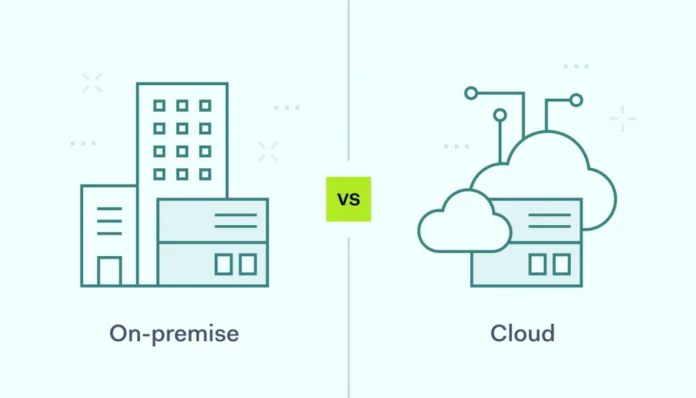As usual, we begin by championing cybersecurity. It stands as the foremost concern for organizations striving to safeguard their sensitive data and digital assets. Among the many strategies available, two dominant paradigms have emerged: on-premises security and cloud security. Understanding the nuances, implications, and complexities of each approach is crucial for organizations seeking to fortify their defenses against evolving cyber threats. Let’s examine their implementation, status, skill gaps, and contextual considerations.
On-Premises Security:
Implementation:
On-premises security epitomizes the traditional approach to safeguarding digital assets, entailing the deployment of security solutions within an organization’s physical infrastructure. This approach involves tools and technologies, including firewalls, intrusion detection/prevention systems (IDS/IPS), endpoint protection software, and network monitoring tools. On-premises security affords organizations a sense of control and familiarity over their security posture, as they retain direct oversight and management of security infrastructure.
Status:
Despite the explosion in popularity of cloud computing, on-premises security maintains a pervasive presence, particularly among enterprises with legacy systems or stringent regulatory obligations. Organizations grappling with compliance requirements or data sovereignty concerns often gravitate towards on-premises solutions, perceiving them as a bastion of control and trustworthiness. However, the perpetuation of on-premises security necessitates substantial investments in hardware, software licenses, and skilled personnel, presenting financial and operational challenges.
Skill Gaps:
Effectively managing on-premises security demands a cadre of specialized skills encompassing network security, system administration, and incident response. IT professionals entrusted with the stewardship of on-premises security must exhibit proficiency in security protocols, vulnerability management, and threat detection methodologies. The acquisition and retention of personnel possessing these specialized skill sets pose challenges for organizations amidst a competitive talent landscape and burgeoning demand for cybersecurity expertise.
Cloud Security:
Implementation:
Cloud security constitutes the classic response to the exigencies of a digital era characterized by ubiquitous connectivity and dynamic scalability. This approach entails safeguarding data and applications hosted on cloud platforms such as Amazon Web Services (AWS), Microsoft Azure, and Google Cloud Platform. Cloud security solutions encompass a diverse array of tools and services, including identity and access management (IAM), encryption, data loss prevention (DLP), and security monitoring. By leveraging the inherent scalability and resilience of cloud infrastructure, organizations can fortify their security posture while mitigating operational overheads.
Status:
Cloud security has undergone a meteoric ascent in recent years, propelled by the ongoing march towards digital transformation and the associated migration of workloads to cloud environments. Despite initial apprehensions regarding data security and privacy in the cloud, organizations increasingly view cloud platforms as bastions of security and reliability. Cloud providers, cognizant of the imperative to engender trust and confidence among users, continually enhance their security offerings, adhering to rigorous industry standards and regulatory mandates.
Skill Gaps:
Cloud security demands a distinctive skill set, diverging from traditional on-premises security paradigms. IT professionals tasked with designing cloud security initiatives must cultivate expertise in cloud architecture, cloud-native security tools, DevSecOps methodologies, and compliance frameworks. The dynamic and ever-evolving nature of cloud technology necessitates continuous skills development and training initiatives to equip personnel with the awareness that is necessary for navigating the complexities of cloud security effectively.
Hybrid Approaches:
Many organizations embrace hybrid approaches that amalgamate elements of on-premises and cloud security, striving to strike an optimal balance between control, scalability, and flexibility. In a hybrid environment, critical workloads may reside on-premises to satisfy stringent compliance requirements or data sovereignty mandates, while non-sensitive applications leverage the agility and elasticity afforded by cloud platforms. Hybrid architectures furnish organizations with the versatility to adapt to evolving business requirements while preserving the sanctity of sensitive data and regulatory compliance.
In conclusion, the dual-ship between on-premises and cloud security represents the quintessential dilemma confronting organizations in their quest to fortify their cyber defenses amidst a turmoil of ever-evolving threats. While on-premises security affords a semblance of control and familiarity, cloud security gives scalability, agility, and resilience. By comprehensively outlining the nuances, implications, and contextual considerations of each approach, organizations can chart a well advised course towards fortifying their cyber defenses and safeguarding their digital assets.




